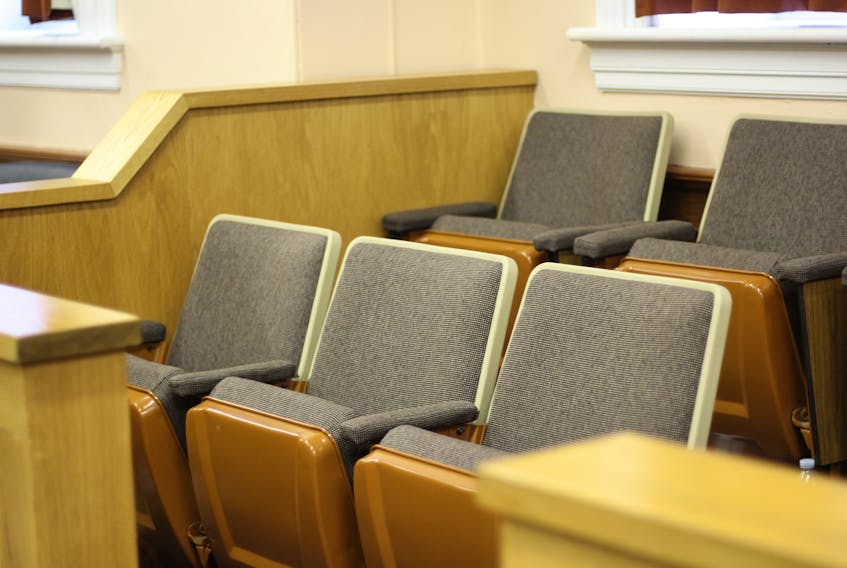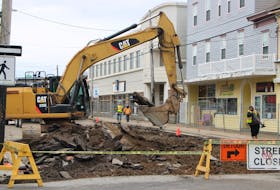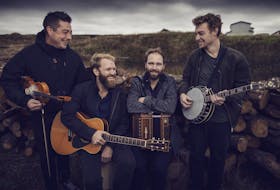ST. JOHN'S — Justice has been delayed for accused criminals, victims and their families in this province who were set to go to trial before a jury over recent months, but it’s something the court and the government continue to try and figure out.
Dr. Janice Fitzgerald, the province’s Chief Medical Officer of Health, said Thursday her office has been in discussions with Justice Raymond Whalen, chief justice of the Supreme Court of Newfoundland and Labrador, to come up with a way to hold jury trials safely until there's a COVID-19 vaccine.
“The challenges are, number one, with jury selection. It tends to be a large gathering of people and so from a mass gathering point of view that’s a challenge that will have to be overcome,” Fitzgerald said in response to a question from The Telegram at the province’s daily COVID-19 briefings.
“And then just the set-up of the trials themselves, obviously we’d have to consider physical distancing and having enough space to allow that to happen. Those are things we’ve discussed with regard to the resumption of jury trials.”
Related
- How do you hold a socially-distant jury trial?
- All upcoming jury trials in Newfoundland and Labrador Supreme Court postponed amid coronavirus concerns
Fitzgerald didn’t elaborate on possible solutions, and neither did a spokeswoman for the Department of Health and Community Services when asked in an e-mail.
At least four jury trials have so far been postponed as one of the measures taken by the courts to limit the spread of the novel coronavirus.
Since March, 260 people in Newfoundland and Labrador have contracted the virus, but there have been no new cases in the past 17 days. Of the people afflicted, 254 have recovered and three are still in hospital. Three local people have died of COVID-19.

As government slowly relaxes the limitations it implemented in response to the public health pandemic, the courts are starting to do the same. Having limited court matters to emergency hearings and cases involving those in custody, Supreme and Provincial courts have started increasing the types of cases judges will hear to include criminal applications, management conferences and other matters, as well as certain trials by videoconference. Provincial Court is tentatively expected to reopen at the end of June.
Because it’s impossible to conduct a jury trial over the phone or through a screen, they will be the last to be rescheduled.
Among the trials postponed in St. John’s are that of RNC Const. Doug Snelgrove, who had been set to be re-tried for sexual assault at the end of March. Snelgrove was acquitted by a jury in 2017 of sexually assaulting a woman while on duty, but the Crown appealed the conviction. Two of the three appeal judges agreed the appeal should be allowed, paving the way for a new trial, while the third disagreed. Snelgrove took his case to the Supreme Court of Canada, which ordered a new trial.
Whalen originally postponed the jury trials until the end of May, but, as The Telegram has previous reported, he has said he doesn’t think it likely they will go ahead before the fall.
“I don’t think we can really see that jury trials are going to happen any time soon,” he said at the beginning of the month during a webinar with chief justices from the other Atlantic provinces, organized by Lexis Nexis. “I don’t want to make any kind of announcement and say we’re not going to be doing jury trials until such and such date, because I don’t have that date and that plan hasn’t fallen in place yet.”
At that time, Whalen said he had written Fitzgerald’s office for advice.
“Justice delayed is justice denied, but that’s been the impact of COVID-19. Justice has been delayed and jury trials will be delayed most of all.”

It’s not uncommon for hundreds of people to be summoned for jury selection for a single trial in St. John’s, filling two or three courtrooms as the judge and lawyers undertake the process of whittling them down to 12, usually with two alternates. The court has made accommodations in the past for an exceptionally large group of potential jurors; for instance, when close to 1,000 people were subpoenaed for jury selection in an effort to find an unbiased and impartial jury to hear the murder trial of Trent Butt in April 2018, arrangements were made to move the selection process from the courthouse to the St. John’s Arts and Culture Centre.
Butt’s trial was postponed for a year after he fired his lawyers at the last minute. A jury eventually convicted him of first-degree murder in the death of his five-year-old daughter, Quinn, earning him a life jail sentence, which he has appealed.
Whalen mentioned in the webinar that the St. John’s Convention Centre was a potential consideration.
“We’re looking at what facilities are available, if somewhere in the province, like the convention centre, could house the actual picking of a jury panel, but again, we certainly haven’t made a plan on that,” he said. “Some have suggested that jury trials may not be feasible until after a vaccine.”
— With files from Peter Jackson









